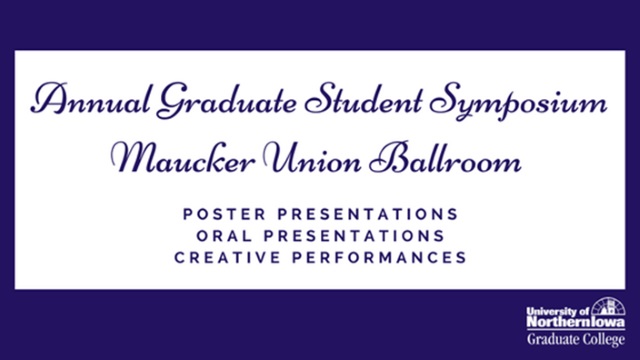
Complete Schedule
Depletion of Cognitive Resources May Not Affect Conservatives’ Endorsement of Binding Moral Foundations
Presentation Type
Poster Presentation (Electronic Copy Not Available)
Keywords
Party affiliation--Moral and ethical aspects;
Abstract
Moral Foundations Questionnaire research (MFQ; Graham, Nosek, Haidt, Iyer, Koleva, & Ditto, 2011) suggests that political liberals and conservatives have different moral foundations (Graham, Haidt, & Nosek, 2009), however, the MFQ has been criticized for its validity within various sub-groups (Davis, Dooley, Hook, Choe, & McElroy, 2017), possibly due to biased items (e.g., references to “God”). Modified items without these references were less related to political orientation (PO; Lewey, Zubrod, & Harton, 2018). In this study, we examined whether Lewey et al’s items would also be less affected by cognitive busyness. Online participants (N= 207) kept a mental count of their eye blinks during a filler questionnaire or during the entire study (randomly assigned; Ulkumen, Thomas, & Morwitz, 2008) to manipulate cognitive busyness. After the filler questionnaire, participants completed the MFQ (Graham et al, 2011), our modified MFQ items, and demographic questions. In the low cognitive busyness condition, all five original MFQ subscales were correlated with PO, whereas only authority from our modified subscales was. In the high cognitive busyness condition, loyalty, authority, and purity from the original MFQ correlated with PO, and fairness, authority, and purity from our modified subscales did. The original MFQ was more related to PO than the modified MFQ for most subscales. Our results provide further support for our revised scale as well as evidence of conservatives endorsing the binding moral foundations even under cognitive load, contradictory to previous research, suggesting that the default may not be liberal after all (cf., Greene et al., 2008).
Start Date
3-4-2019 11:00 AM
End Date
3-4-2019 1:00 PM
Faculty Advisor
Helen Harton
Department
Department of Psychology
Copyright
©2019 Alivia Zubrod, Evan Stilgenbauer & Nathan Lewey
File Format
application/pdf
Embargo Date
4-16-2019
Depletion of Cognitive Resources May Not Affect Conservatives’ Endorsement of Binding Moral Foundations
Moral Foundations Questionnaire research (MFQ; Graham, Nosek, Haidt, Iyer, Koleva, & Ditto, 2011) suggests that political liberals and conservatives have different moral foundations (Graham, Haidt, & Nosek, 2009), however, the MFQ has been criticized for its validity within various sub-groups (Davis, Dooley, Hook, Choe, & McElroy, 2017), possibly due to biased items (e.g., references to “God”). Modified items without these references were less related to political orientation (PO; Lewey, Zubrod, & Harton, 2018). In this study, we examined whether Lewey et al’s items would also be less affected by cognitive busyness. Online participants (N= 207) kept a mental count of their eye blinks during a filler questionnaire or during the entire study (randomly assigned; Ulkumen, Thomas, & Morwitz, 2008) to manipulate cognitive busyness. After the filler questionnaire, participants completed the MFQ (Graham et al, 2011), our modified MFQ items, and demographic questions. In the low cognitive busyness condition, all five original MFQ subscales were correlated with PO, whereas only authority from our modified subscales was. In the high cognitive busyness condition, loyalty, authority, and purity from the original MFQ correlated with PO, and fairness, authority, and purity from our modified subscales did. The original MFQ was more related to PO than the modified MFQ for most subscales. Our results provide further support for our revised scale as well as evidence of conservatives endorsing the binding moral foundations even under cognitive load, contradictory to previous research, suggesting that the default may not be liberal after all (cf., Greene et al., 2008).


